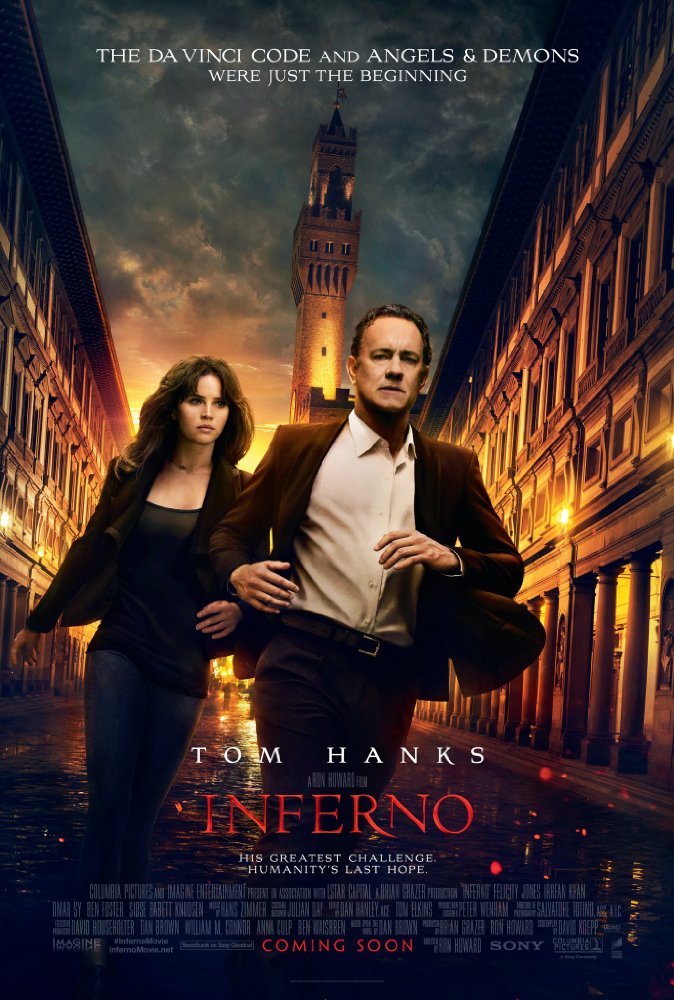
Inferno Review

In amongst the sprinting around Italy and exclaiming that anagrams are anagrams, there is a moment where Dr Robert Langdon’s face shows something between sudden realisation and anguish at who is the bad guy. The issue is that we spend so long searching for the good guys, the answers to the absurd riddles, that this reveal is the umpteenth of the film and not close to the last.
That’s the problem with Robert Langdon novels; there is a twist and turn every 4 pages that the amount of red herrings can take away from the ultimate plot. This time round, Langdon wakes up in Florence with a gun shot wound, no memory, and being chased by everyone. There are rumblings of a biological weapon that is about to be released, so of course it’s a maze of symbols and codes that only Langdon or someone with decent wifi could have a good stab at.
Langdon is joined by his de facto partner in solving the crime, Sienna, a doctor in the hospital he wakes up in who also has a penchant for clues and riddles, and the two set off on the chase for a biological weapon which will cull half the human race, bringing us to our next Renaissance.
Members of the World Health Organization, the Italian police, and members of a secret organization arrive in tow, and from there we have our story of what inter-railing would be like if it was dreadfully dull.
Tom Hanks is back as Robert Langdon, a role which always seemed strange for him to choose from The Da Vinci Code. He always seems wasted, his wit and charm much more than the Cambridge professor could ever manage to have. Felicity Jones is this episode’s female interest, and does a good job in playing the puzzle wizard, but we are left wondering why she needs Langdon. Sienna is clearly adept, and Langdon, without his memory for a great portion of the picture, seems to provide little more than a stumbling block at times.
The twists and turns that the story takes become cumbersome and you leave wondering how you didn’t guess where the story was going, as well as having the worst “I don’t have a signal” reaction we’ve seen in recent years. And in trying to be clever, it simply crosses into cliché territory.
When it is finally revealed who of the women in the picture is dangerous, she next comes into frame wearing new make up to make her look sinister which, unless was bought while gallivanting between cities, is tough to explain it’s need. That said, the toughest aspect to explain is, if Ben Foster’s Zobist truly believed in guiding the Earth to it’s next Renaissance, why not unleash the pathogen himself?
Instead, the billionaire leaves a host of Dante-inspired clues for his followers and would be opponents, to decipher. It comes across as cowardice, pointless, and is one of the many questions posed at the end of the film, which is never answered. It is this sudden realisation which may account for Tom Hanks’ anguish more than anything else, as he attempts to understand why an actor of his magnitude is part of a project this farfetched, lifeless, and defunct.
Inferno is released in the UK on October 14
